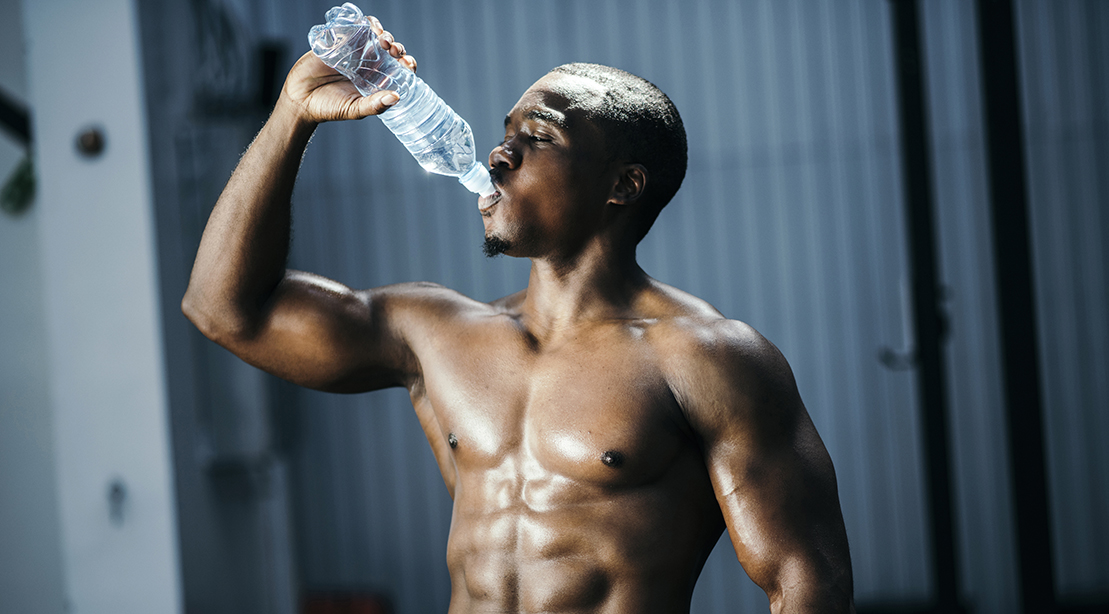- Empty cart.
- Continue Shopping
The Importance of Hydration for Men’s Physical Performance: Unlocking Peak Potential

Hydration is a fundamental aspect of human physiology, playing a pivotal role in overall health and well-being. For men, proper hydration is not only essential for daily life but also a critical factor in optimizing physical performance.
The Significance of Hydration in Physical Performance
1. Muscle Function
Hydration is vital for maintaining muscle function. Muscles are composed of approximately 75% water, and adequate fluid levels are required for muscle contraction and performance. Dehydration can lead to muscle cramps and reduced strength and endurance.
2. Thermoregulation
During physical activity, the body generates heat, and sweating is the primary means of cooling down. Sweat consists of water and electrolytes, and losing excessive fluids without proper replacement can lead to overheating and heat-related illnesses. Staying hydrated supports effective thermoregulation, allowing you to perform better in hot conditions.
3. Cardiovascular Health
Dehydration can strain the cardiovascular system, leading to an increased heart rate and decreased blood volume. This can make physical exertion feel more challenging and lead to premature fatigue.
4. Cognitive Function
Hydration is not limited to physical performance; it also impacts cognitive function. Dehydration can impair concentration, decision-making, and coordination, all of which are crucial for optimal sports and exercise performance.
Consequences of Dehydration in Men’s Physical Performance
5. Reduced Endurance
Dehydration reduces endurance by making physical activity feel more strenuous. Even mild dehydration, as little as 2% of body weight, can lead to decreased endurance capacity.
6. Decreased Strength and Power
Dehydration can result in reduced muscle strength and power, affecting performance in activities that require explosive movements, such as weightlifting and sprinting.
7. Muscle Cramps
Inadequate fluid balance increases the risk of muscle cramps, which can be not only painful but also disruptive to physical performance.
8. Increased Risk of Injury
Dehydrated muscles and joints are more prone to injuries, such as strains and sprains, as they lack the necessary lubrication and shock absorption.
9. Impaired Recovery
Hydration is crucial for post-exercise recovery. Dehydration can delay recovery by impairing the body’s ability to repair and rebuild muscle tissues.
Practical Strategies for Maintaining Optimal Hydration
10. Pre-Hydration
Start your day with a glass of water, and aim to drink fluids consistently throughout the day. Pre-hydration is especially important before engaging in physical activity.
11. Monitor Urine Color
Check the color of your urine. Light, pale yellow urine indicates proper hydration, while dark yellow or amber urine suggests dehydration.
12. Hydrate Before Exercise
Drink 16-20 ounces (about 500-600 ml) of water or a sports drink 2-3 hours before exercise. This ensures you start your activity well-hydrated.
13. Stay Hydrated During Exercise
During prolonged or intense exercise, aim to consume fluids regularly to replace sweat losses. Sports drinks can be beneficial for activities lasting longer than an hour, as they provide electrolytes in addition to fluids.
14. Post-Exercise Hydration
After exercise, continue to drink fluids to replace any remaining fluid deficits. Consuming a combination of water and foods with high water content, such as fruits and vegetables, can help with rehydration.
15. Individualize Hydration Plans
Hydration needs vary depending on factors such as body size, sweat rate, and environmental conditions. Tailor your hydration strategy to meet your specific requirements.
16. Monitor Electrolytes
In addition to water, consider electrolyte intake, especially if you’re engaged in intense exercise. Sodium, potassium, magnesium, and calcium are crucial electrolytes for muscle function and overall hydration.
17. Avoid Excessive Caffeine and Alcohol
Caffeinated and alcoholic beverages can contribute to dehydration, so consume them in moderation and offset their effects by drinking more water.
In Conclusion, Hydration is not merely a matter of thirst but a fundamental element that can make or break men’s physical performance. Dehydration can lead to reduced endurance, strength, and cognitive function, increasing the risk of injuries and hampering overall athletic potential. By prioritizing proper hydration through consistent fluid intake, monitoring urine color, and individualizing hydration strategies, men can unlock their peak physical performance and achieve their fitness and athletic goals. Remember, staying well-hydrated is not just a good practice; it’s a game-changer in the pursuit of athletic excellence.








